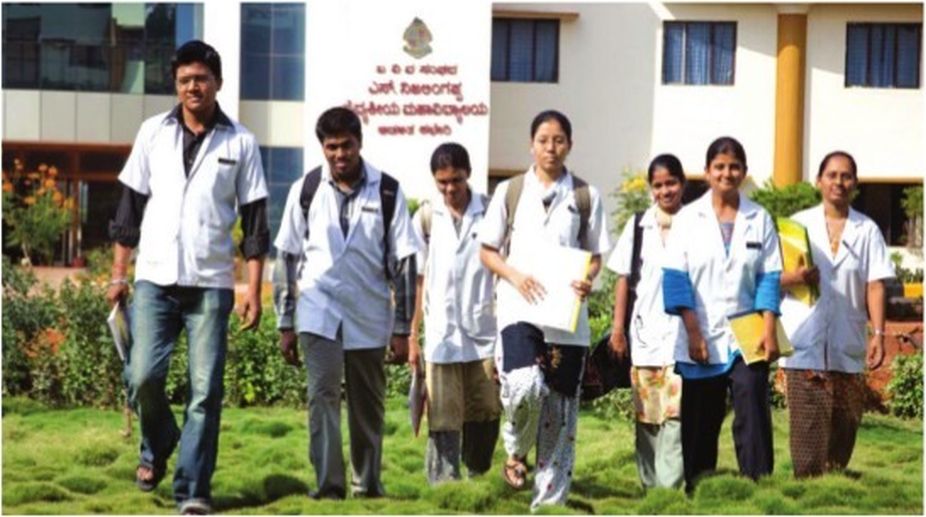PM Modi showed keen interest in our model of rural development: Zoho’s Sridhar Vembu
PM Modi addressed a massive election rally in Tirunelveli's Ambasamudram grounds on Monday.

IIHMR (PHOTO: SNS)
The current undergraduate medial education is the legacy of the last 70 years since Independence. But it leaves much to be desired, especially the gap between rural and urban healthcare. There are various reasons for this. The MBBS programme to educate and train doctors is limited in its scope. Earlier, in government hospitals or in private clinics were more of family physicians involved with the overall health of an individual.
Today, with healthcare becoming highly commercialised, we have to address this problem and train doctors to see themselves as primarily as care givers and life savers. There are other crucial aspects of medical education which we need to focus on. Foremost is the need for the quality education and good infrastructure, both for in and out-patient departments in hospitals.
There is an acute shortage of infrastructure in the private medical colleges and a dire need for the faculty development programme. As technology changes, doctors need to be trained to use new equipments. Faculty members and the doctors working in medical colleges often carry on private practice as a result which they are not able to devote quality time in hospitals and to teaching.
Advertisement
Very often, this is because hospitals especially those run by state governments pay a pittance salary and so doctors have to supplement their income with private practice. The salaries paid to them need to improve if the quality of healthcare provided by them is to be better.
They should be given opportunities to attend conferences, seminars and professional/management training programmes to upgrade their knowledge and skill. Another thing urgently needed is managerial skills. Not many doctors are good with it. But in hospital set-ups, it is much needed. What we need is a skill lab. This is a concept where undergraduates are trained on demo patients to carry out various anatomical physiological activities. Diagnostics equipment in labs and ICUs need constant upgradation.
Many a time, they are outdated. We need to modernise the whole set-up for training and teaching purposes. Coming to postgraduate medical education, there is not enough opportunity for doctors to acquire a degree. There isn’t really a need for training large number of the specialists and super specialists. What we need to do, is to innovate.
The country develops not more than 100 or 150 cardiologists every year. We need to think out of the box for solutions to train manpower shortage in medical and associated sectors. Reforms in medical education are under way, but we have a long way to go. We need to develop programmes that address healthcare delivery at district and sub-district levels and help in skill upgradation of medical professionals and paramedics.
The writer is dean, IIHMR, Delhi
Advertisement